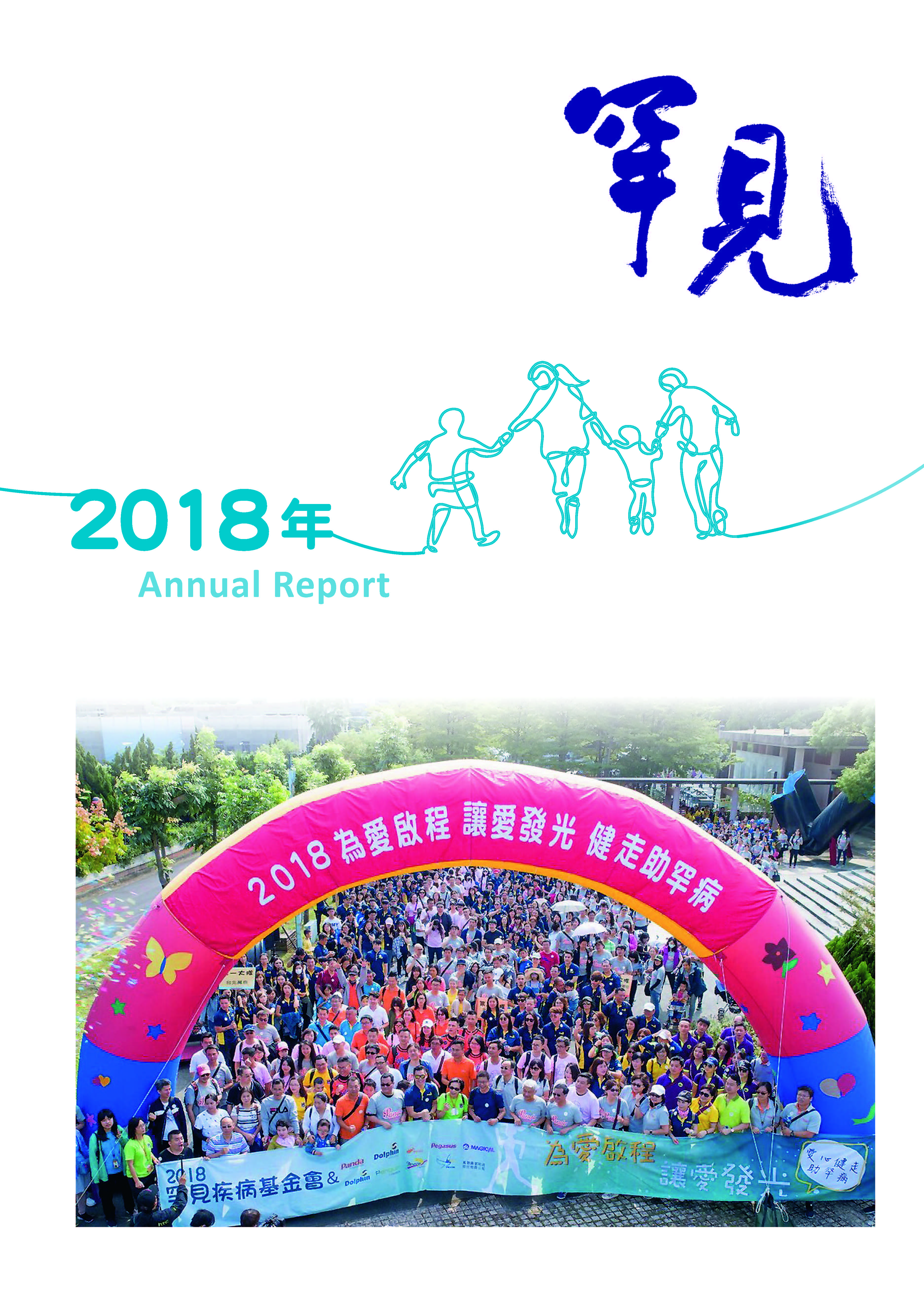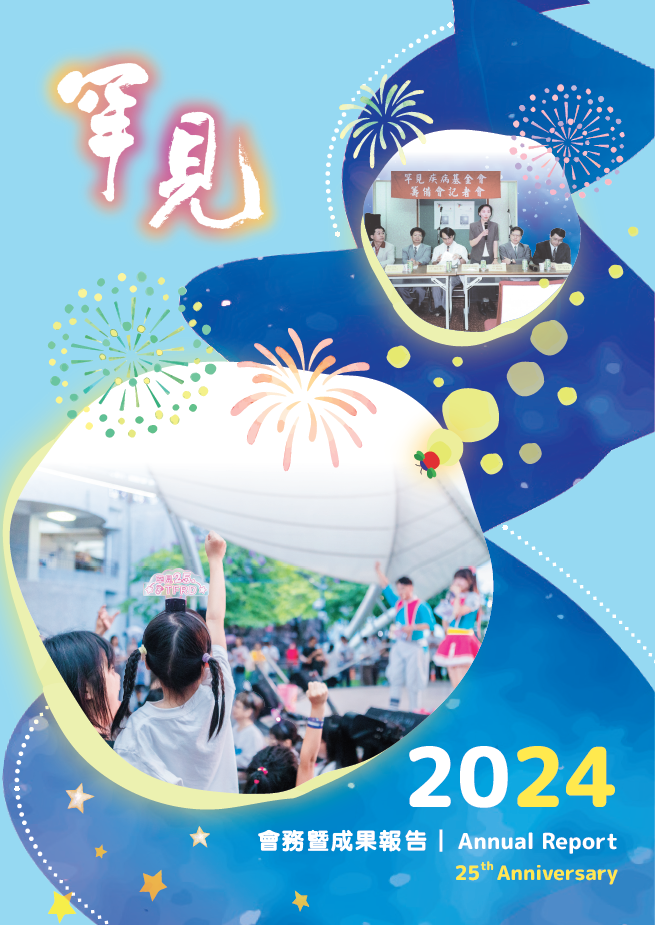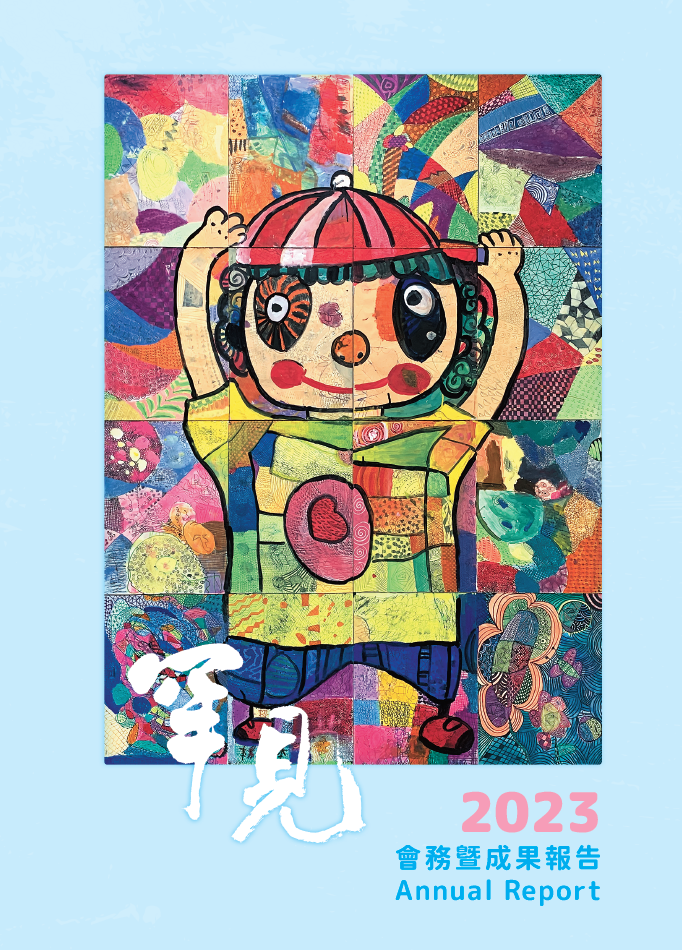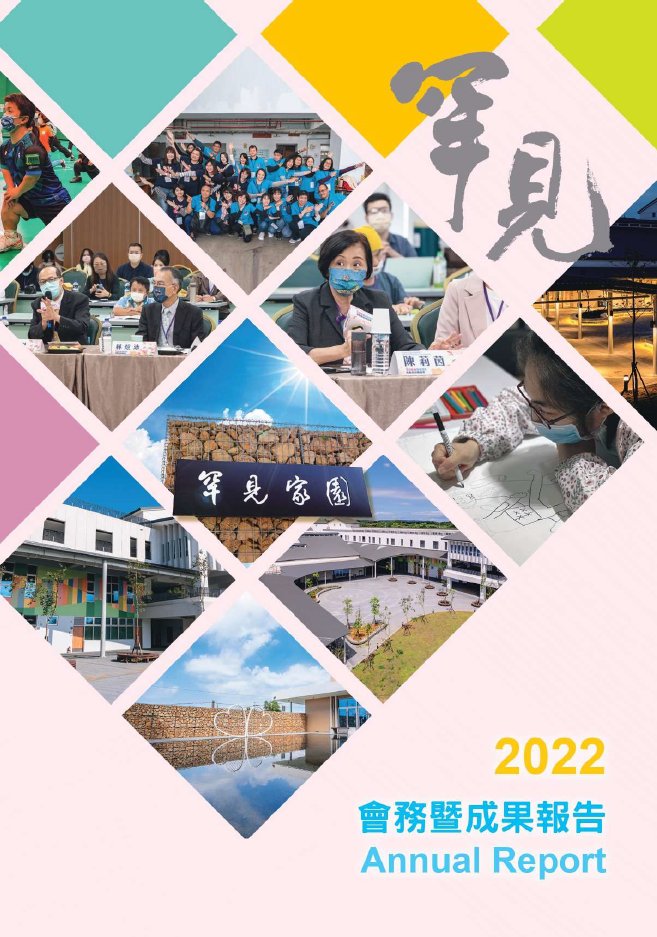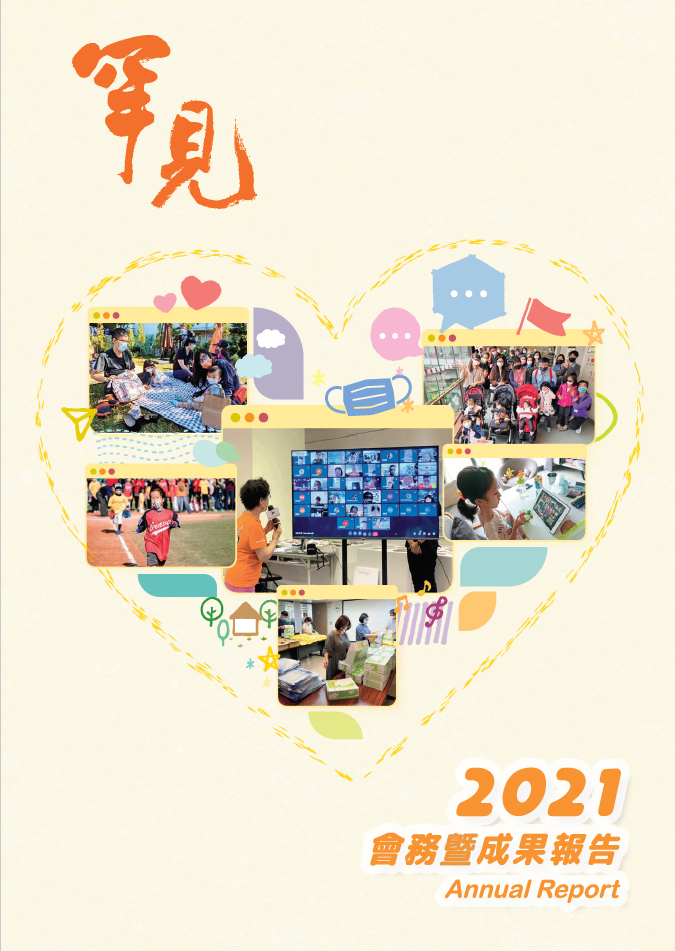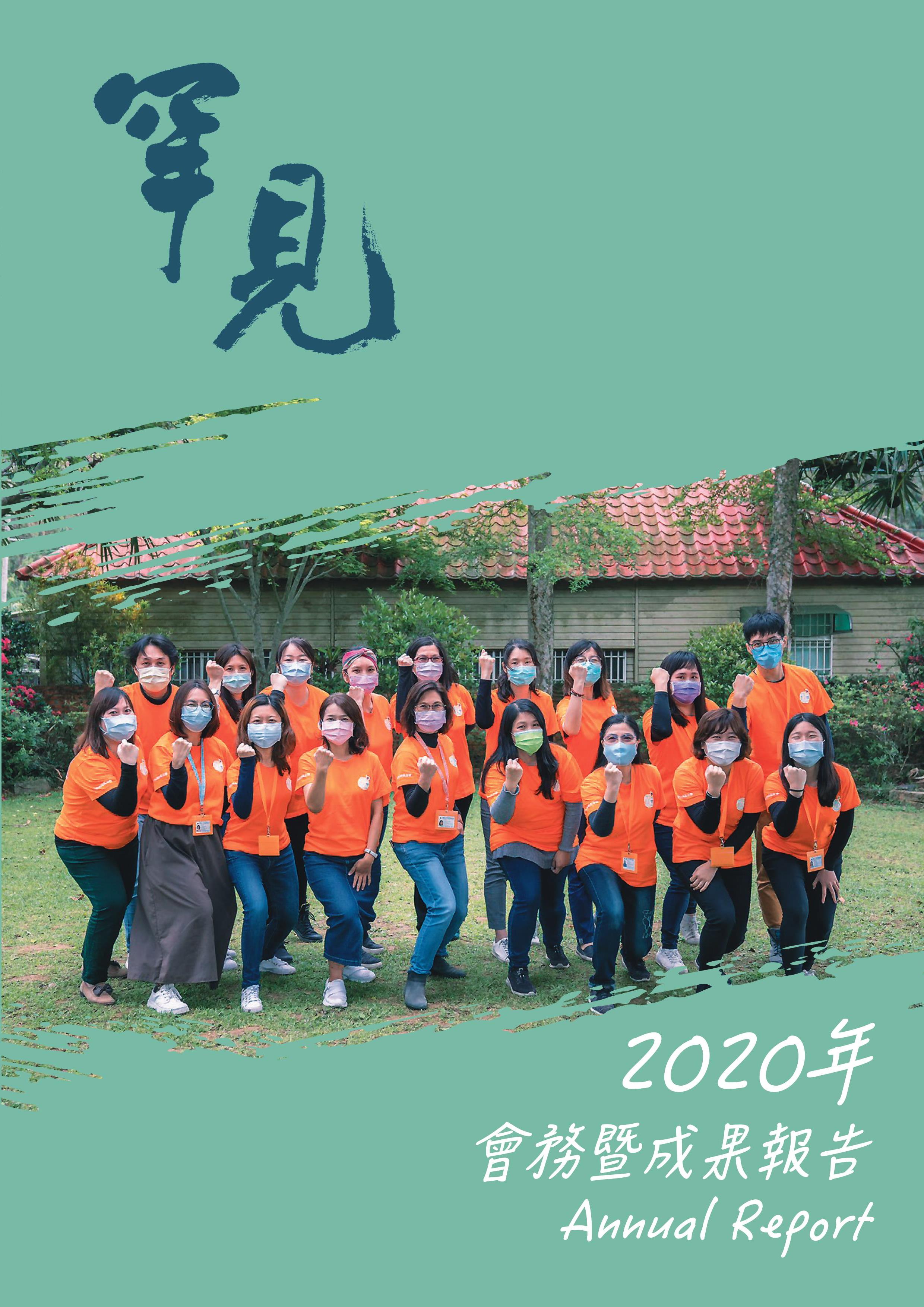Summary of 2018 Annual Report
For the past 20 years, TFRD (Taiwan Foundation for Rare Disorders) contributes in the fields of policy lobbying, disease prevention and patient care for rare disease families. We are dedicated to becoming a patient-centric non-government organization and fulfilling the needs of rare disease patients’ family.
In 2000, TFRD supervises and urges the passing of the legislation of “Rare Disease Prevention and Orphan Drug Act”, which made Taiwan the fifth country in the world with relevant rare disease laws. The Act is also the first law that covers subsidies for rare disorders prevention, cure, and research and development of rare disease. Furthermore, TFRD continuously facilitates laws that categorize rare disorders as a disability. We also urge the government to include rare diseases into the NHI coverage as one of the catastrophic illnesses, allowing rare disease patients receive special payment coverage for orphan drugs. Moreover, we are in favor of government taking its legal role and responsibility as the guardian of rare diseases patients.
To advocate the concept of disease prevention, TFRD launches “Expanded Newborn Screening Pilot Project” in 2000. The new testing technology can screen nearly 30 kinds of rare diseases by using tandem mass spectrometry, which takes only few drops of blood from a newborn baby’s heel to test. Later in 2003, TFRD further devotes the subsidies program for indigenous newborns screening. Until now, TFRD subsidies 187,650 aboriginal and low-income newborn babies for the testing fee. TFRD will be the guardian angel for indigenous newborns continuously to help them get early diagnosis and early treatment of rare diseases.
In addition to policy lobbying, TFRD provides direct services in medical care, psychological care and financial support to rare disease families as well as assistance programs for schooling and employment counseling. In 2018, we serve 256 kinds of rare diseases with 6,783 patients. Our direct services are divided into Service Programs and Personalized Services based on the family needs. This year, the Service Programs provide 16,069 times services about economic benefits, tube feeding dietary supplement, psychological counseling, performing workshop and micro insurance. The Personalized Services provide 6,419 times for genetic counseling, nutrition counseling, social resource management and relative medical services. TFRD also helps 450 high-risk families to get through difficult times with continuous support and care and sets up a consultation hot line which allows general public to call for advices for rare diseases questions. In addition, in cooperating with Taiwan Organization for Disadvantaged Patients, we provide mental support, resources referral and counseling to patients who are medically disadvantaged.
To enhance the public awareness of rare diseases, TFRD is dedicated to increasing media exposure with various promotion activities. In 2018, TFRD invites TV host Patty Hou and football players from Taipei Playone as public ambassadors.
TFRD provides continuing education courses for the professionals who provide direct service to rare disease families in different fields, such as schools, welfare organizations, and nursing homes. In these courses, professionals can learn about the knowledge of rare diseases, and the skills of caring. In 2018, TFRD holds two courses for college students and two professional courses for social workers and nurses.
To promote public awareness of rare diseases, TFRD regularly releases publications, digital resources, official updates on the website and Facebook. TRFD publishes 4 books with external partners as well as 24 books on rare disease series, 1 picture book series with 12 books, 21 care brochures, 76 quarterly magazines with a total circulation of 838,000 subscribers, 137 issues of e-newsletters with 7,454 subscribers each issue, 137 kind of leaflets; 19 CDs/DVDs, 3 annual reports. In 2015, we co-produce with Philharmonic Radio Taipei broadcast drama “Isle of firefly story” that featured different kinds of rare diseases by storytelling. The radio drama received positive feedback. Therefore, we publish 12 audio and picture books of “Isle of firefly story” based on the materials of radio drama. TFRD expects that the school teachers can use the audio books as a tool to promote students’ understanding of rare diseases.
To enhance the incentive for rare disease research, TFRD offers the research grants and scholarships to the experts, scholars and medical professionals in Taiwan. Until now, we issue 41 projects for NT$17.44 million and 114 scholarships for NT$4.57 million. Those researches yield rich harvest, especially in the improvement of patient’s quality of life and medical development.
TFRD also proactively connects with international associations and patient organizations in the hopes of fostering information exchange and collaboration. This year, TFRD representatives are invited as international speakers by several organizations to share our experience, including “16th FAP International Seminar” in Japan, and “The 7th China Rare Disease Summit” in Shanghai. Several international experts of rare disease also paid a visit to TFRD, including the chairman of APEC LSIF - RDN Prof. Matthew Bellgard, Prof. Bertram Häussler from German, and hold the 1st cross-straits interaction of the rare disease patient groups.
Hsinchu Kansai Welfare Home is another key project of TFRD’s 2nd decade establishment. The project aims to create a place where patients feel comfortable to attend various activities, such as farming, leisure, rehabilitation, psychological counseling, skills cultivation, respite care service, family activities and social education. Following the transplantation of Osmanthus tree project at the end of 2015, and the donation campaign “500 Osmanthus trees, 500 benefactors” in 2016, TFRD commissions the architecture firm to design our Welfare Home in 2018 and 2019. After two years of constructions, hopefully Hsinchu Kansai Welfare Home will be open in 2021.
Over the past year, all the board members and staffs of TFRD are dedicated to offering patient-centric services and programs to rare disease families. We invite the general public to be the volunteers or donors of TFRD. With your help and support, rare disease families will never give up.

